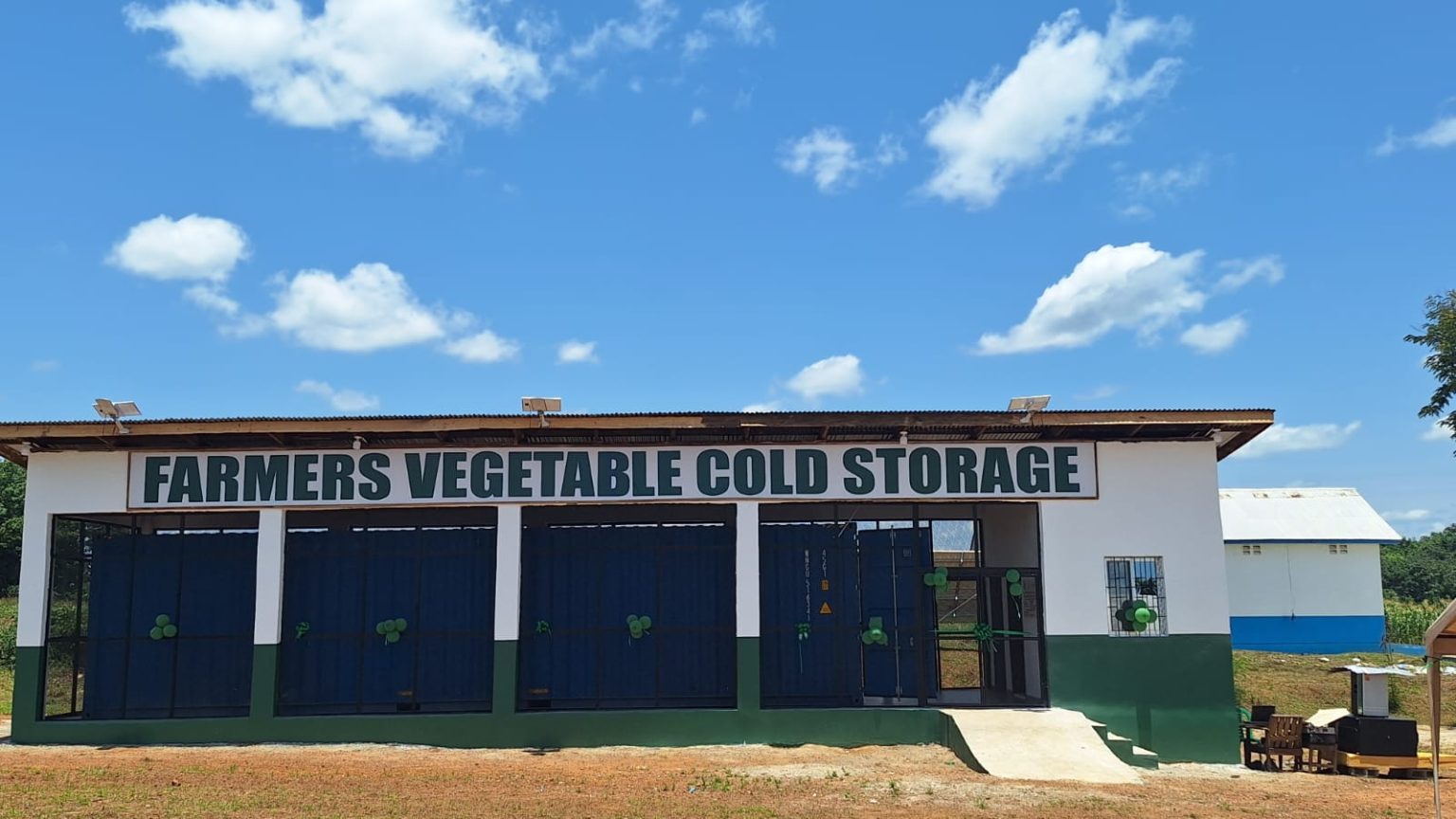The Liberian Ministry of Agriculture, through its Rural Economic Transformation Project (RETRAP), has inaugurated a state-of-the-art cold storage facility in Whenlenle, Nimba County, marking a pivotal step towards revitalizing the nation’s agricultural sector. This facility, strategically positioned along the Ganta-Monrovia Highway in a prominent vegetable-producing region, is funded by a $300,000 World Bank loan and aims to drastically reduce post-harvest losses, maintain produce quality, and enhance access to both local and national markets. The initiative underscores the government’s commitment to empowering farmers, improving market accessibility, and fostering a more resilient and sustainable agricultural sector. This investment represents a crucial intervention in an area where farmers have historically faced significant challenges in preserving their harvests and maximizing their income potential.
The newly established cold storage facility comprises a 40-foot refrigerated container with a 77-cubic-meter capacity, powered by a hybrid energy system combining a 15kVA solar power setup and a 20kVA generator. This dual-power approach ensures uninterrupted operation throughout the year, irrespective of weather conditions, providing farmers with a reliable solution for preserving their perishable goods. Complementing the cold storage unit, the Ministry has also provided a new vegetable transport van with a 3-4 ton capacity, further bolstering the efficiency of the supply chain from farm to market. This integrated approach addresses the critical logistical challenges often faced by farmers in transporting their produce to market, enabling them to reach wider consumer bases and optimize their earnings.
The driving force behind the project stemmed from firsthand observations of the struggles faced by local farmers. Gala Toto, National Program Coordinator of RETRAP, recounted witnessing farmers laboriously loading trucks with cabbages late at night, highlighting the need for a sustainable solution to preserve their produce. This observation sparked the idea for the cold storage facility, which was subsequently incorporated into the project proposal and approved by the steering committee. Mr. Toto emphasized the project’s aim to shift the focus from merely facilitating transport to Monrovia to strengthening local market supply, thereby stimulating rural economic growth and creating a thriving local value chain. He envisions a scenario where supermarkets actively seek out local farmers for their produce, fostering a dynamic and profitable agricultural ecosystem within the community.
The inauguration ceremony was attended by government officials and community representatives, highlighting the collaborative effort driving this transformative project. Assistant Minister of Agriculture, Folton Blasin, dedicated the facility on behalf of the Minister, reaffirming the government’s commitment to empowering farmers and enhancing market access. He urged the beneficiaries to utilize the facility responsibly and effectively to maximize its potential for community-wide benefit. His call for collaboration underscored the importance of collective ownership and sustainable management of the facility to ensure its long-term success and impact. This collaborative approach fosters a sense of shared responsibility and ensures the project’s benefits are maximized for all stakeholders.
Representing the beneficiaries, Ezekiel Sayetee, Chairperson of the “Say No to Hunger Farmers Multipurpose Cooperative Society,” which donated land for the project, expressed profound gratitude for the new facility. He emphasized its significance not only for their village but also for the wider farming community stretching from Nengbein to Beila, encompassing a significant network of vegetable producers. Mr. Sayetee stressed the importance of collective responsibility in maintaining the facility, recognizing its crucial role in achieving food security in Liberia. His commitment highlights the community’s understanding of the project’s long-term value and their dedication to ensuring its sustainability. This local ownership is vital for the facility’s long-term success and its contribution to the region’s agricultural development.
The launch of the Whenlenle cold storage facility represents a significant milestone in Liberia’s ongoing efforts to transform its agricultural sector. By addressing the critical issue of post-harvest losses, the facility empowers farmers to maximize their income potential, contributing to improved livelihoods and greater economic stability within the community. This initiative not only enhances food security but also fosters a more resilient and sustainable agricultural system. Furthermore, the project serves as a model for future development initiatives, demonstrating the potential of targeted investments and community partnerships to drive meaningful change in the agricultural landscape of Liberia. The focus on local market development, coupled with improved infrastructure and transport capabilities, creates a virtuous cycle of growth and prosperity, paving the way for a more vibrant and sustainable agricultural sector.














